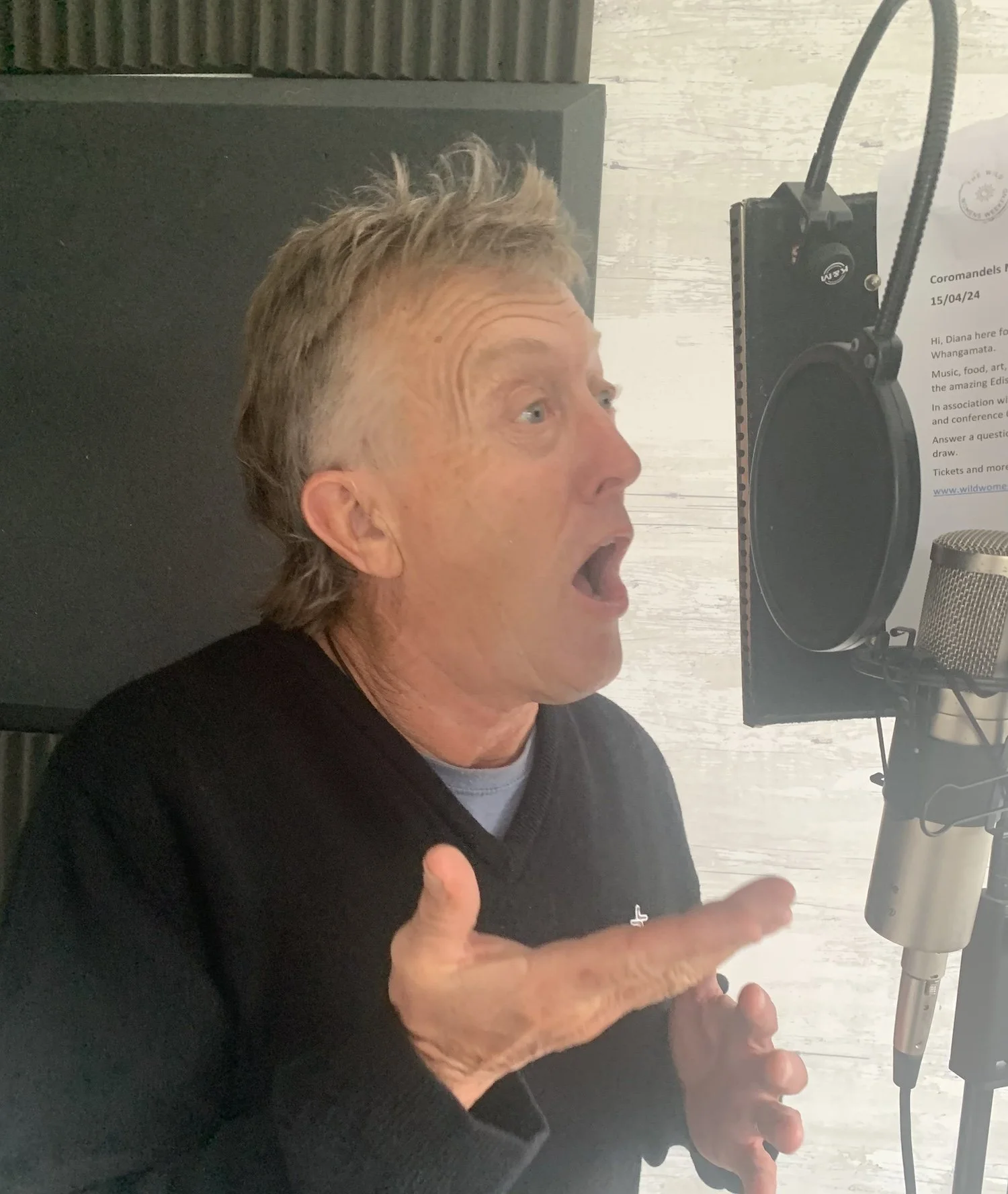So you’d like to become a voiceover artist. Fantastic!
To do this, you have to provide us with a demo recording. How to go about this is at the bottom of the page. But BEFORE you do this, here are some important questions to consider.
-
Like the rest of the acting and entertainment industry, there are many more people than there are jobs. Even professionals with years of experience often only get a few jobs a year… Yes, it is that hard!
-
Many successful voiceover artists were not trained as actors, however acting classes can teach you how to convey specific emotions. This is what writers and producers are after.
Also, acting classes can train you in using your voice to its full potential.
We recommend the book “The Right to Speak - Working with the Voice” by Patsy Roddenberg OBE. Her book is a wonderful tool and has given many people, (from actors, singers and voice-over artists to lawyers, teachers and students) total confidence in whatever they say. She helps give people “the right to speak”
-
Create your own voiceover content and share it on social media platforms. It is also worth contacting local radio stations to see if you can do work experience.
-
No and Maybe.
Voiceover work is largey based on your natural voice (listen to any documentary, telephone voice menu system or TV commercial and you’ll hear a natural voice). If producers want a certain type of accent they’ll hire someone with that naturally.
Having said that, good accents can be used for characters in animations, audiobooks and some videogames. But remember, you have to be able to sustain the accent.
How to do a demo – Preparation is key
You must include a selection of commercial reads, every agent needs this. If you haven’t made any professional commercials, find some magazine adverts with plenty of copy in them, and read them aloud as it would sound on television or radio. You can also record your own version of existing adverts but beware of sounding inferior to the original version.
The second requirement is a documentary piece. For this you will need to watch a typical documentary or reality style show and copy their script when recording. Audiobook, video game and animation reels are always welcome. It’s best to tailor your reels, to make them unique and bespoke to YOUR voice, and the areas of voiceover work you are most interested in personally.
Often, voiceover artists are asked to give examples of their voices recording a variety of scripts including continuity reads, promos for TV and radio, telephone messaging and podcasts.
At Piranha Talent, we are looking for variety, range and diversity in our voice talent. You must prove that your voice is strong, versatile and adaptable.
Recording your demo
When you are confident with your scripts and you are completely ready to go, it’s time to book some studio time. Contact our sister company Post Production Sound. nigel@postproductionsound.co.nz
You’ll need to book 1.5hours. This will include the actual voice recording as well as the producing and compiling. To make the most of your precious studio time, ensure you are well prepared and ready to get straight into the voice booth.
After a day or two, you will receive your material in a digital audio format. Keep a copy for yourself and email an MP3 to us. We will have a listen and get back to you if we think there is an opportunity for you at Piranha Talent Agency.
Please be aware that the chances of acceptance are slim. As we’ve already pointed out, this is a very competitive industry. The most common reason for not taking a new voice actor on is simply because it is too similar to a voice we already represent. But if you think you’ve got what it takes, give it a try!


